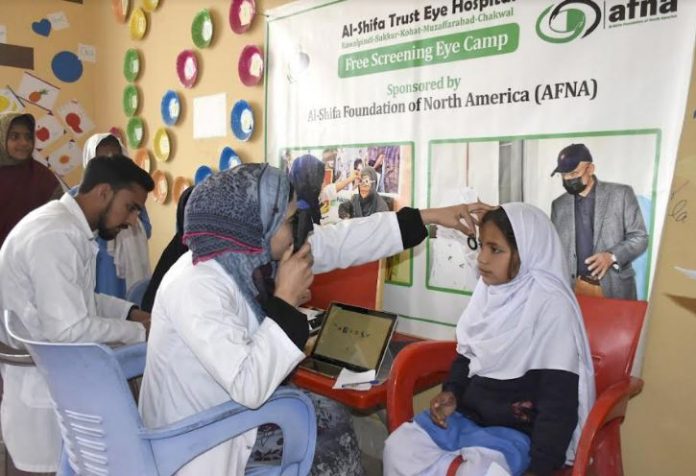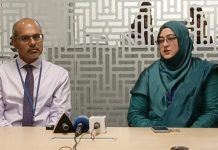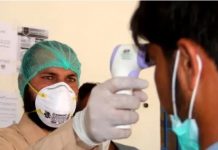RAWALPINDI: Al-Shifa Trust has screened about 175,000 students in one year in 550 free eye camps organized in the underserved areas of the country.
Dr Hasan Raza, Deputy General Manager of Al-Shifa Center for Community Ophthalmology (ACCO), said fifty per cent of the kids with eye issues had hazy vision, while many had congenital cataracts.
Talking to media men, he said that 50 per cent of the children were facing blurry vision, which is convergence insufficiency. It happens when the nerves controlling eye muscles don’t work correctly. One eye turns out when people with convergence insufficiency look at something up close.
The second-largest disease found was myopia, as almost thirty per cent of the children had near-sightedness or myopia. Myopia is a common vision condition in which light rays that should be focused on nerve tissue at the back of the eye are focused in front of the retina instead.
Dr Hasan said that the number of congenital cataracts is alarming. It’s essential to spot cataracts in children quickly because early treatment can reduce the risk of long-term vision problems.
ACCO refers such children to Al-Shifa Trust Hospital, Rawalpindi, providing them with transport and meals.
He said free eye camps were organized in the remote areas of districts Rawalpindi, Sukkur, Kohat, Muzaffarabad, and Chakwal. In these camps, 175000 students were screened and treated, and 13000 cases were referred to Al-Shifa Trust Eye Hospital.
He informed that the children were also found suffering from eye problems, such as blepharitis, hyperopia, squint, corneal opacity, traumatic cataracts, astigmatism, and conjunctivitis.
He said that ACCO’s main objective is to organize school screening eye camps to help children facing eye diseases at an early age and educate them about preventive measures to keep their eyes healthy.
The trust began its outreach project in 1992. Its free eye camps are established all over Pakistan, and such camps are being increased to help people in far-flung areas, where most patients lack the resources to access quality healthcare.
He underlined that eye-related problems are increasing at an alarming pace; therefore, all public and private concerns should boost their efforts to combat this menace.

















